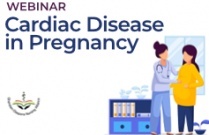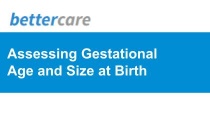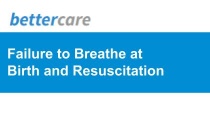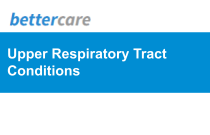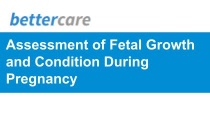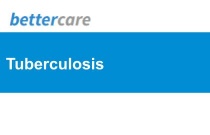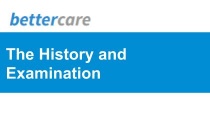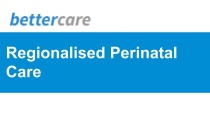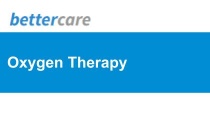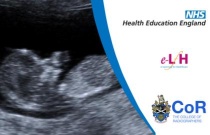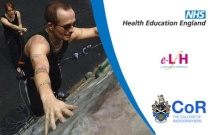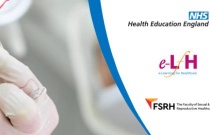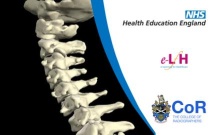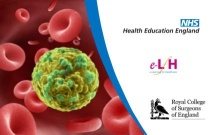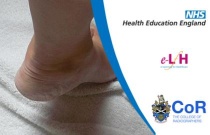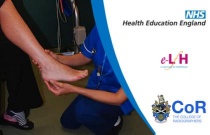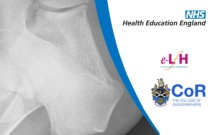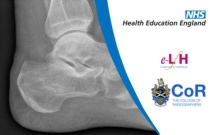Cardiac Disease in Pregnancy
Natasha Gaudin
Brief overview of cardiac disease in pregnancy, related changes and management of cardiac arrest
Jumpstart Your Thought Leadership on LinkedIn
Ms Sydnee Logan
This session will jumpstart — or elevate — how you use LinkedIn to maximize your impact at G-DNA and beyond. Designed for nurses, researchers, and public health professionals, it focuses on building a credible, consistent online presence while balancing real-world demands. You’ll learn how to show up on LinkedIn in ways that....
Palliative and End of Life Care in Gynecologic Malignancies
Mr Evans Osei
In this presentation, I will share my research journey, beginning with my work in cervical cancer and its progression toward a broader focus on palliative and end-of-life care in breast and gynecological cancers. I will explore the central question: Why focus on women, and why specifically on breast and gynecologic cancers? I wi....
Assessing Gestational Age and Size at Birth
Dr D H Greenfield, Prof G Theron, Prof H de Groot, Ms H Louw, Dr N Rhoda, Ms M Petersen, Prof P Henning, Prof C Pieper, Dr A Horn, Dr M Hann.
Learn to define normal gestational age and birth weight ranges, classify infants by these metrics, and address complications in preterm, postterm, underweight, and overweight infants.
Failure to Breathe at Birth and Resuscitation
Dr D H Greenfield, Prof G Theron, Prof H de Groot, Ms H Louw, Dr N Rhoda, Ms M Petersen, Prof P Henning, Prof C Pieper, Dr A Horn, Dr M Hann.
This unit covers identifying poor breathing at birth, preparing and performing newborn resuscitation, preventing meconium aspiration, and managing neonatal encephalopathy and hypoxia.
Paediatric Prescribing
Mrs Chikhulupiliro Chimwaza Yiwombe
This webinar aims at strengthening pharmacists’ competencies in clinical, hospital and public health practice. The session will focus on safe and rational prescribing practices in pediatric populations, with emphasis on dosing accuracy, formulation considerations, and prevention of medications errors in children.
Upper Respiratory Tract Conditions
David Woods, Prof Andrew Argent, Dr Gerry Boon, Dr Louise Cooke, Prof Mark Cotton, Ms Fawzia Desai, Prof Peter Donald, Prof Angela Dramowski, Dr Teresa Edwards, Prof Brian Eley, Dr Mary Hann, Prof John Ireland, Prof Prakash Jeena, Dr Pieter Jooste, Prof M
Learn to identify signs of breathing difficulty, diagnose lower respiratory conditions, and manage them using a syndromic approach to cough and respiratory distress.
Assessment of Fetal Growth and Condition During Pregnancy
Prof G Theron, Prof H van C de Groot, Dr D Greenfield, Prof D Woods, Ms H Louw, Ms M Petersen, Dr N Rhoda, Prof GS Gebhardt, Prof DR Hall, Dr HA Swart and Dr CA Cluver
Assessing Fetal Growth and Wellbeing: This course covers the evaluation of fetal growth and movements, focusing on the use of clinical tools such as symphysis-fundus height measurements and fetal movement charts. Learners will explore causes of growth restriction, interpret fetal monitoring data, and manage cases with reduced fe....
Tuberculosis
David Woods, Prof Andrew Argent, Dr Gerry Boon, Dr Louise Cooke, Prof Mark Cotton, Ms Fawzia Desai, Prof Peter Donald, Prof Angela Dramowski, Dr Teresa Edwards, Prof Brian Eley, Dr Mary Hann, Prof John Ireland, Prof Prakash Jeena, Dr Pieter Jooste, Prof M
Understand the dangers of tuberculosis in children, how to diagnose and prevent it, perform and interpret Mantoux testing, and manage TB cases effectively.
The History and Examination
David Woods, Prof Andrew Argent, Dr Gerry Boon, Dr Louise Cooke, Prof Mark Cotton, Ms Fawzia Desai, Prof Peter Donald, Prof Angela Dramowski, Dr Teresa Edwards, Prof Brian Eley, Dr Mary Hann, Prof John Ireland, Prof Prakash Jeena, Dr Pieter Jooste, Prof M
Learn to conduct a full clinical consultation for a child, including history taking, physical examination, clinical assessment, problem listing, and writing effective notes.
Antepartum Haemorrhage
Prof G Theron, Prof H van C de Groot, Dr D Greenfield, Prof D Woods, Ms H Louw, Ms M Petersen, Dr N Rhoda, Prof GS Gebhardt, Prof DR Hall, Dr HA Swart, Dr CA Cluver.
Antepartum Haemorrhage: Assessment and Management: This course addresses the critical nature of antepartum bleeding, emphasizing rapid assessment, diagnosis, and intervention. Learners will explore the causes, perform necessary evaluations, and apply appropriate management strategies to reduce risks for both mother and fetus.
Regionalised Perinatal Care
Prof G Theron, Prof H van C de Groot, Dr D Greenfield, Prof D Woods, Ms H Louw, Ms M Petersen, Dr N Rhoda, Prof GS Gebhardt, Prof DR Hall, Dr HA Swart, Dr CA Cluver.
Regionalised Perinatal Care and Maternal Health Systems: This course introduces the structure and function of regional perinatal care systems. Learners will gain skills in patient communication, safe transfer procedures, and understanding healthcare metrics such as maternal mortality rates.
Oxygen Therapy
Dr D H Greenfield, Prof G Theron, Prof H de Groot, Ms H Louw, Dr N Rhoda, Ms M Petersen, Prof P Henning, Prof C Pieper, Dr A Horn, Dr M Hann.
Learn when and how to safely administer oxygen to infants, including the use of equipment, indications, dangers, and benefits of continuous positive airway pressure (CPAP).
Module 4: Complementary Feeding
Pr Andrew Prentice and Dr Helen Nabwera
This Nestlé Nutrition Institute (NNI) course on Pediatric Nutrition is designed for health care professionals involved in the care and education of parents with young children in Africa. The fourth module covers complementary feeding of infants. This is often a difficult period for parents as they start the transition away from....
Clinical Imaging - Obstetric Ultrasound: Fetal Heart and Chest
Sophie Bale and Allison Harris
This session will focus upon the fetal heart and chest. Anatomy and physiology will be discussed alongside ultrasound imaging technique and the presentation of common pathologies which can be detected antenatally.
Image Interpretation - Adult Skeleton (X-ray): Carpal Bones - Session 1
Claire Giles
This session will look at injuries related to the carpal bones. It will focus on identifying anatomy demonstrated on both diagrams and radiographs, and offer examples of radiographic technique. Mechanisms of injury (MOI) will be discussed to develop a knowledge base in clinical presentations. Common fractures, pathologies and no....
STI Testing
Dr Theresa Laverty
This session will cover testing for common sexually transmitted infections (STIs) and blood-borne viruses (BBVs). It will explore current testing options for these in the community and home testing and when to refer to specialist services. This session looks at the diagnostic methods used for vaginal discharge and describe....
Managing Bleeding Problems in Women Using Contraceptives
Dr Johanna Wong
This session examines the short and long-term bleeding patterns associated with various methods of contraception and explores the management of women experiencing problematic bleeding.
Intrauterine Contraception (IUC)
Ms Caroline Gumbley
This session offers guidance for health professionals on the use of intrauterine contraception (IUC) such as copper intrauterine devices (Cu-IUDs) and levonorgestrel-releasing intrauterine devices (LNG-IUDs).
Image Interpretation of the Cervical Spine: Session 1
Claire Giles
This session will look at injuries related to the cervical spine. It will focus on identifying anatomy demonstrated on both diagrams and radiographs, and offer examples of radiographic technique. Mechanisms of injury (MOI) will be discussed to develop a knowledge base in clinical presentations.
Common Cancers in the Dental Patient
StJohn Crean, Rishi Bhandari
This session describes the signs and symptoms that may manifest in patients diagnosed with cancers and looks at the impact of important cancers on the provision of dental care.
Image Interpretation - Adult Skeleton (X-ray): Ankle - Session 3
Nick Woznitza
A self-assessment quiz based on Image Interpretation - Adult Skeleton (X-ray): Ankle - Sessions 1 and 2.
Image Interpretation - Adult Skeleton (X-ray): Foot - Session 2
Kevin Harvell and Kathy Dewar
This session will describe common fractures, dislocations, pathologies and normal variants found in the toes, metatarsals and tarsal bones. These will be illustrated using radiographic examples.
Image Interpretation - Adult Skeleton (X-ray): Calcaneum - Session 1
Kevin Harvell and Kathy Dewar
This session will look at injuries related to the calcaneum. It will focus on identifying anatomy demonstrated on both diagrams and radiographs, and offer examples of radiographic technique. Mechanisms of injury (MOI) will be discussed to develop a knowledge base in clinical presentations. Common fractures, pathologies and norma....
Image Interpretation - Adult Skeleton (X-ray): Calcaneum - Session 2
Kevin Harvell and Kathy Dewar
A self-assessment quiz based on Image Interpretation - Adult Skeleton (X-ray): Calcaneum - Session 1.
